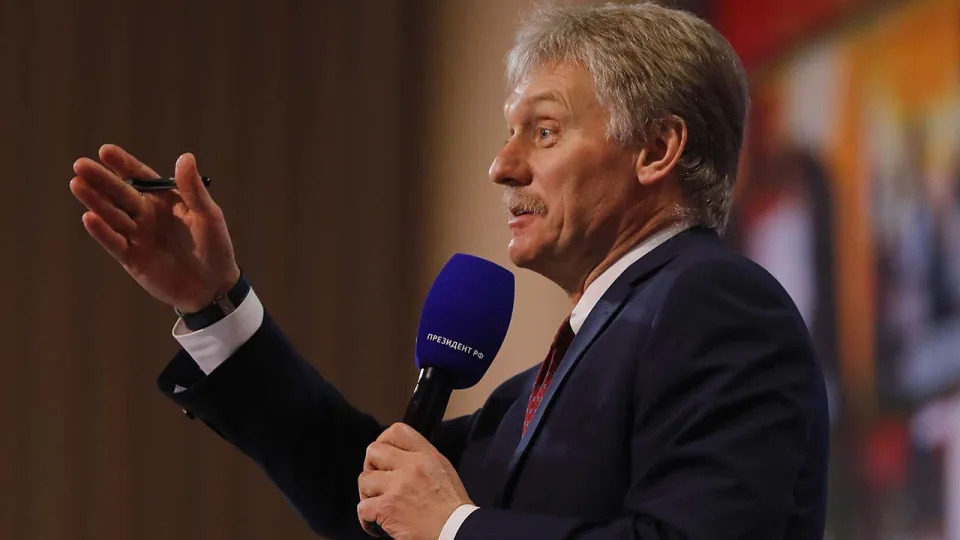
Фото: Shutterstock | Ограничение цен на нефть в 2023 году лишит Россию значительной части
Kremlin rejects EU oil price cap: 'Europe will live without Russian oil'
foxbusiness: The Kremlin on Saturday rejected the European Union’s plan to cap Russian oil prices at $60 a barrel as it looks to starve Moscow’s war chest and warned "Europe will live without Russian oil."
"Moscow has already made it clear that it will NOT supply oil to those countries who support anti-market price cap," Mikhail Ulyanov, Russia's permanent representative to International Organizations in Vienna said in a Saturday tweet.
The agreement reached Friday by the EU will reportedly set the stage for additional measures by the G7 to target Russia as it continues its deadly war in Ukraine.
World leaders sought to balance a plan that would hit the Kremlin’s top earner while also allowing some Russian oil to remain in the market amid global fears over soaring energy costs and inflation.
The price cap effectively blocks all Western companies from insuring, financing or shipping Russian oil unless it is sold for less than $60 a barrel – a stipulation that will likely be felt in Russia given the more than $85 a barrel price tag listed Saturday under Brent, the international benchmark for crude oil.
Kremlin spokesperson Dmitry Peskov echoed Ulyanov’s comments and told reporters Saturday that they were "assessing the situation" and noted that "certain preparations" had already been made in case an oil price cap was established.
Peskov did not detail what precautionary measures the Kremlin has taken but said, "We will inform you how the work will be organized once the assessment is over," reported TASS.
Though each member of the EU had to sign off on the Friday agreement, not all nations felt the cap hit Russia hard enough.
MOSCOW, RUSSIA - DECEMBER 17: Kremlin spokesman Dmitry Peskov is seen as a moderator of Russian President Vladimir Putin's annual press conference in Moscow, Russia on December 17, 2020.
Some nations like Poland and the Baltic States pushed for a stricter cap at $30 a barrel and Estonian Prime Minister Kaja Kallas pointed out that every dollar removed in the cap amounted to $2 billion less in Russia’s war chest.
Despite some concern that the cap could drive up prices by draining the oil market, U.S. Treasury Secretary Janet Yellen argued that the new limits will help lower the price of oil globally.
"The price cap will encourage the flow of discounted Russian oil onto global markets and is designed to help protect consumers and businesses from global supply disruptions," she said, arguing it will help lower and middle income nations the most that have "borne the brunt" of rising energy prices.
"Whether these countries purchase energy inside or outside of the cap, the cap will enable them to bargain for steeper discounts on Russian oil," she added.
Russia's embassy in the U.S. called her comments "arrogant" and alleged the move was "dangerous," claiming that Russia will continue to find buyers for its oil.
"Steps like these will inevitably result in increasing uncertainty and imposing higher costs for raw materials' consumers," the embassy added.
In World
-
Protests broke out on Tuesday in several predominantly Christian neighborhoods of Damascus after a video circulated online showing a group of people burning a Christmas tree near Hama in central Syria, according to Western media reports.
-
U.S. President Joe Biden is considering imposing fresh sanctions on Russia’s energy sector during the closing weeks of his presidency, The Washington Post reported on Sunday, citing four sources. The potential measures have been described by the newspaper as a “farewell blow to Putin’s war chest.”
-
Syrian de facto leader Ahmed al-Sharaa reached an agreement with former heads of rebel groups on Tuesday to dissolve their factions and integrate them under the Ministry of Defense, according to a statement from the newly formed administration in Damascus.
-
Israeli Defense Minister Israel Katz admitted on Monday for the first time publicly to Israel's killing of Hamas leader Ismail Haniyeh in Iran in July, further risking tensions between Tehran and its arch-enemy Israel in a region shaken by Israel's war in Gaza and the conflict in Lebanon.
Ölkədədaxili siyasət Qərblə münasibətlərə hesablanıb? – Seymur Həzi ilə gündəm müzakirəsi Çətin sualda
News Line
-
- Social,
- 17:06
- 151
-
- Economics,
- 13:33
- 434
-
- Politics,
- 12:40
- 332
-
- Finance,
- 10:49
- 279
-
- Energy,
- 07:22
- 163














Leave a review